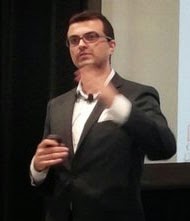Analyst,
Visionary Innovation
Frost & Sullivan
Tesla has promised it will not enforce its mountain of electric car patents against anyone producing electric vehicles “in good faith”. This surprise move is consistent with Tesla’s narrative, as well as having definite strategic benefits which position the world’s premier electric vehicle manufacturer very well if other companies take advantage of all the technology that is now free.
Tesla has
been site-shopping for its much touted GigaFactory, which when completed will
more than double the world’s capacity to produce lithium-ions batteries of the
type that can power a car. If other automakers begin using Tesla technologies
to build mass market electric vehicles, they will need a steady supply of
high-quality lithium ion batteries. Tesla will have effectively created the
market for electric vehicles parts, while simultaneously positioning itself as
the vendor of choice for those parts. It’s an incredibly savvy move, and sets
Tesla up as a channel partner rather than direct competitor to the largest,
most globalized players in the market.
Historically,
a major hindrance to the adoption of electric vehicles has been the lack of
charging infrastructure. Currently, 97 Tesla stations are operational in North
America, and can provide a half charge in 20 minutes for free, or a fully
charged battery-pack swap in less than half the time it takes to fuel a
gasoline vehicle for a fee. Tesla has continued development of its charging
infrastructure not only in the US, but also in Europe and Asia as overseas
demand increases. If electric car manufacturing explodes the way it could,
given all the free technology, Tesla stations will be the best way to charge.
Elon Musk has said that for Tesla owners “supercharging… is and always will be
free”, but that promise doesn’t extend to owners of other electric vehicles.
And if those stations use renewable energy (like SolarCity panels), stored in
lithium-ion batteries from the GigaFactory, that’s an awful lot of electricity
sales to bolster Tesla’s revenue from parts and vehicles.
While this
move is strategically sound, I believe that Tesla’s statement is genuine. Mr.
Musk writes:
“Tesla
Motors was created to accelerate the advent of sustainable transport. If we
clear a path to the creation of compelling electric vehicles, but then lay
intellectual property landmines behind us to inhibit others, we are acting in a
manner contrary to that goal. Tesla will not initiate patent lawsuits against
anyone who, in good faith, wants to use our technology.”
I believe
this is all true. Tesla’s behavior has consistently supported their rhetoric of
enabling new technology and maximizing customer value. Whether it’s debating
dealership-funded legislators for the right to sell electric cars directly to
consumers, or Mr. Musk personally guaranteeing the value of all Tesla vehicles
out of his own pocket, they seem to genuinely believe in delivering the best
quality product available on the market. And according to Consumer Reports, the
company has done exactly that, and built “the best car we [Consumer Reports]
have ever tested.”
There is no
reason that open-source has to stop at software. For example, Facebook has
developed an initiative to build open source data center hardware. Tesla’s move
to open the market for electric vehicle market to its competitors, at its own
expense, may both solidify Tesla’s position as well as bring about the electric
vehicle revolution for which we’ve all been waiting.


No comments:
Post a Comment